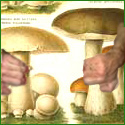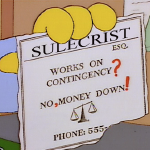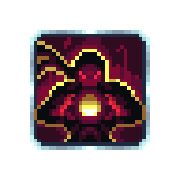|
punishedkissinger posted:Have you talked to your players about their characters yet? Thats pretty critical. I like to use the first session to get an idea of the characters and where they want to go. Once you have that its a lot easier to plot out the other sessions. Not yet. Several of them are going to be brand new, so I was hoping to have a bit of material stretching out ahead while they get their legs beneath them. Maybe that's not the best way, I dunno.
|
|
|
|

|
| # ? Jun 9, 2024 16:23 |
|
punishedkissinger posted:these are all great ideas! thanks everyone, I will ponder them and report back with whatever we end up doing. random encounters are actually sick in a really good travel sequence. you do not just go on a website which says "uh... 36 goblins and ... one wyvern and ... a greater web arisalvhcia golem...? the gently caress is that..?" but instead you create for a geographic area a random events table. you create, say, 12 bespoke encounters. they do not all have to be combat. when you have players move through the area roll on this table you created to see which of these things happens. each bespoke encounter can have its own plot thread, you can tie it to the events of the area as a way of storytelling, or if the group defeats your hand designed greater web arisalvhcia golem encounter and decides they dont care about the mission, they need to stop the spider wizard creating these things, now you have a sidequest. these things feel natural because they are random things that might happen in the area
|
|
|
|
Nehru the Damaja posted:Not yet. Several of them are going to be brand new, so I was hoping to have a bit of material stretching out ahead while they get their legs beneath them. Maybe that's not the best way, I dunno.
|
|
|
|
Its not strictly necessary to do anything ahead of time, i would just keep the first session very simple with only one or two encounters and good amount of time for the party to introduce themselves to each other (and by extension, you). I know its a well-worn trope but "roadside ambush" is an easy thing to spring once the in-game conversation starts to lull. you give the party a chance to establish their hero status while also learning the rules. i guess i would summarize most first sessions as something like 1. Party meets 2. Introduce action 3. Tease upcoming plot Keeping it simple is key. edit: i dont disagree with this and it's basically how i write my campaigns. come up with a bunch of hooks ahead of time and then sprinkle them in as needed. works great! punishedkissinger fucked around with this message at 21:59 on Oct 15, 2021 |
|
|
|
I'm a big fan of "players belong to some sort of organization and are assumed to have had at least a few preceding interactions" premise for starting a campaign, and then starting them in a dungeon in media res, possibly even starting in the middle of a fight. They get a few rounds of combat to get used to navigating their character sheet, and then when the fight ends you can be like: "At this point it's clear that you're lost. It seems like that orb you retrieved from the forest shrine was more powerful than anyone imagined, and the landscape is changing beneath your feet. The one constant is a small stream that you've tramped through half a dozen times, which always seems to be blocking your way no matter which direction you're headed. The College of Wizards made clear they needed the orb before the expected solar eclipse, but it's looking like you might miss the date unless you can untangle a path through these woods." The first adventure in a campaign is about your players finding their sea legs, and I find it's best to save most character development for the downtime after the first adventure, so people don't get too caught up trying to act like a character they haven't fully figured out yet.
|
|
|
|
|

|
|
|
|
Re: travel: I just had a travel session where i used some of the random encounter tables from the DM’s guide to build a series of combat and non-combat encounters that my players had fun with. It ended up being a nice break after a long Caves of Chaos adventure. Lore-wise, a dragon who had until recently been the protector of the farmland area they had to travel through had turned cloak, and started demanding a tax from locals and travelers. This also allowed more riffraff to run rampant on the road to the destination. The party didn’t hit the rolls needed to randomly run into him on the road, but they did: Encounter a strange knight who lost his memory and will appear in the plot later Encounter a talking boulder who consults his cousin boulders in the major towns for the latest rumors Get ambushed by a weretiger Find a group of nobles who had just been saved from a bullette by the rival adventure party Discover a signpost introducing some new areas the party will visit later I don’t know that i would do this for every travel, but it was a fun change of pace after many sessions of combat slog! Quarterroys fucked around with this message at 22:15 on Oct 15, 2021 |
|
|
|
Quarterroys posted:Re: travel: These are all really fun. My players are generally pretty combat averse. I cold do a better job of implementing smaller events like this though.
|
|
|
|
I would like some advice on running a cooking competition. I'm going to run my group through a cooking-themed adventure from a 5e addon called Dragon Stew. The adventure is in two parts - the first is going through a dungeon in order to find the special ingredient (it's a giant bookwyrm), the second is a cooking competition where they compete against an opposing team to make and present the best dish. The making and presenting are more or less complete - you have a list of instructions on how to prepare the dish, you dole out the steps to make sure you don't take too long, doing checks for each, then run some persuasion checks against the judge, using knowledge of the judge in your answers to gain advantage. It's fine, but I ran it once before and realized it could use some pizazz. I'm thinking allowing the players to do some mischief with the other team, reducing their performance (but mild mischief, like Mage Handing an ingredient out of reach or heating the metal on a pot just a little too high to make it boil over), while also having them make saves to prevent the same from occurring to them. This also allows people who aren't actively cooking or assisting to contribute to the event as a whole. I feel like it could use more, but I'm not sure in what way. Edit: It's basically Iron Chef, in front of a live audience and everything. I figure the mischief can be something that's accepted in the competition as harmless fun (if not harmless, then they are penalized). Morpheus fucked around with this message at 03:33 on Oct 16, 2021 |
|
|
|
they should have plenty of time ahead of the competition to find out that the other side are nefarious little shits who are plotting against them, and against their own teammates. Set up several fatal flaws for them a la Hitman. see also: Family Fracas episode of Bob's Burgers.
|
|
|
|
Add in mid session complications, built into the competition. Like the characters have to take a shot, or do the next step blindfolded. Make sure they know surprises will happen, but not what or when
|
|
|
|
I'm doing a Halloween special with my group, or 3/5 of them. One player already likes to play evil and another has asked if we could do "a scary dream sequence or something" where their established characters get to be bad guys. That gave me an idea. It's gonna start like your usual adventure. Knock on their door in the night, request for help, strange things afoot, and so on. They'll quickly realize the main threat are doppelgangers imitating the usual lot of villagers. They get to look for the source and they get to visit evil upon the innocent along the way, if they please. Some sort of climactic combat encounter at the end and it's done and dusted. Except plot twist, just as the dust settles, there are cries of "we found them" and in comes the regular group of PCs we play as, looking for their own doppelgangers who have been terrorizing the countryside this night, and who the players have secretly been playing as all along. What's the most satisfying way to play this? Have my players suddenly play as their regular characters vs. the doppelgangers again, once the plot twist is established? Or let them do that fight as the evil doppelgangers vs. enemy versions of the usual PC group? In the latter case: this whole bit is a flashback in our ongoing game, canonically the real PCs will have won, but I'm perfectly willing to let the dice fall like they fall and if the players pull out a win I can just end the thing with something like "you wake up from the terrible nightmare where your doppelgangers murder you, watch out for the evil inside yourselves" etc. Also what are some good filler moral choices along the way, what kind of trouble can villagers get themselves into in a spooky night (with or without doppelgangers)?
|
|
|
|
My Lovely Horse posted:I'm doing a Halloween special with my group, or 3/5 of them. One player already likes to play evil and another has asked if we could do "a scary dream sequence or something" where their established characters get to be bad guys. That gave me an idea. Do doppelgangers have some sort of special way to tell each other apart in your setting? If not make one up and graciously inform the players at the start that anybody who fails that test is a doppelganger. I assume you have everybody more or less on board with an evil session, and this gives an in character reason to do whatever evil stuff to villagers. It also gives the final fight as/against the party a tangible stake: the special way doppelgangers tell each other apart. This whole nightmare flashback can be a dream heist by dire doppelgangers to prevent that secret from becoming known to the world at large. Villager wise think about all the ridiculous stuff people would do to "find" witches and apply it to doppelgangers. Plenty of opportunities to give people ironic deaths by drowning or burning in their own doppelganger finding device. Make it clear that any villager that survives the doppelganger trials will be fought during the grand finale. Encourage the players to pit the villagers against each other by "proving" that somebody is a doppelganger. Think about how you would describe how weirdly a doppelganger would die or be wounded. Then describe the mundane injuries that the villagers take like the opposite of that. So instead of talking about how a doppelganger melts and flows around a stab wound, talk about how villagers don't. They got shot by an arrow, and died standing! Handled silver coins like they were nothing! etc. Edit: The most pressing question is whether to have continuity of self inside the session or inside the campaign. And I have no answer to that question. habituallyred fucked around with this message at 04:20 on Oct 23, 2021 |
|
|
|
Nehru the Damaja posted:I've got plenty of time to do stuff because holidays mean we're not gonna get going til January, but how the hell do I plan out a homebrew campaign's actual content? I have an idea of the larger long-term story beats and direction of the campaign, the locations, etc., but I try to have a clear picture of what the first three sessions might look like and all I can come up with is "there is no way I have enough here to fill four hours, let alone 12." And it's not that I don't think the goals and locations and stuff can fill that time. I just have so little idea of what's filling it in. Since you mentioned in a later post that some of your players are new, you can't really go too wrong taking an example from Pendragon, which presents a premade "your last days as a squire before you're knighted" scenario to serve almost like a tutorial level. Like, your characters do some jousting at targets, then they go on a hunt, then they encounter a Saxon raiding party they have to fight, all of which introduces the players to the setting but also to the mechanics. Then they go and get knighted and then they can go be PCs for real. With a homebrew game you're probably not going to have anything quite that structured available to you, but it's not a terrible idea to sort of ease the new players in. You have your first session be the 'everyone meets up and stumbles over plot' session, where you gather the party together and give them a reason to go out and, y'know, find adventure; keep this session mechanics-light, because the point is to ease them into the roleplaying before you ease them into the game parts. You plan your second session around a setpiece combat that the PCs stumble upon. Have some NPCs involved on their side, so that the new players can get used to the combat mechanics and figure out what they're doing in a setting that still lets you go easy on them by having the bad guys target the friendly NPCs instead of the PCs themselves. Then your third session leans into the kind of stuff you want the campaign to be - if you're looking at a very politics and subterfuge heavy game, you introduce that style of plot; if you're running D&D or something where the 'action economy' matters, you string together a series of combats to introduce the players to that idea; that kind of thing. The point is, use those first few sessions as a series of introductions so the newer players can get their feet wet, and for the players who aren't new, ideally you're giving them enough to do via roleplaying or even 'hey could you help Bob figure out the combat, he seems to be having trouble with it' GM assistance that they're not bored by the slower ramp-up.
|
|
|
|
Re travel: I use travel as a way to describe aspects of the setting that aren’t easily dropped in elsewhere. If you want a cool little detail like a rotten rowboat half buried in mud, it will seem like an insanely significant clue if you drop it into a regular scene. But, if the party is traveling sixty miles along the shore of a huge fog-shrouded lake, it can just be a cool detail between an anonymous grave and the moss-covered stones and stumps left by a long-abandoned village. If your setting isn’t just a slightly more magical version of 14th Century France or whatever, it’s also the best way to communicate that to your players. They might not realize that when you say “desert,” rather than Tunisian dunes, you’re picturing northern New Mexico, with lots of stubby hills covered in bushes, cool dry mornings, birds and little lizards everywhere… If it IS France, they should be walking through a village every few miles. Are the villagers surly? Starving? Cheerful? Sick? Suspicious? Are there chickens everywhere? Sheep? Are there shrines/churches/temples? At night, are other planets visible? What are the constellations like? What bugs come out? Is there any common danger, like wolves or wisps or whatever, even if they avoid the campfire? Etc. I usually have a lot more fun with this poo poo than either “okay everyone take turns describing something” or “okay day three, who’s on first watch.” I think my players do too, although YMMV.
|
|
|
|
The question is, how often do you describe that stuff? If you're travelling repeatedly, with multiple stops along the way, how quick before you run out of details and such? After I finished playing as a PC in the Out of the Abyss 5e campaign, I flipped through the campaign guide, and was shocked at the level of detail that it contained for travelling through the Underdark, considering how much travel you do (like, weeks-long trips). I couldn't imagine having the Underdark explained to me every time we set out on another trip, and I can't imagine how long the GM would've had before just running out of ways to describe the place. Edit: Even taking into account the various biomes and such. Doesn't help when you can see like 60 ft out away from you at any given point unless lichens or something are illuminating your current cavern.
|
|
|
|
Re: Travel Travel is an opportunity for the players to foster party cohesion. Even if nothing exciting is happening outside, there's a chance that the interesting things will happen within the personal relationships of each member. Ask them what they talk about with each other in this leg of a journey. Are there any private conversations between just some of the party? Bring up an old session/enemy/encounter. Let the party members narrate the memory in character. Do they have any skills they're practicing? Let them narrate how they've developed a new feat or talent. It's filler, but its a chance for players to stretch their roleplaying legs. Alternatively or additionally, ask the players to name one interesting thing they see on the road each day. Then build a vignette around it. A small, inconsequential encounter might also give the players a chance to roleplay. You could also turn the travel into a chase. Someone has stolen something of theirs and is heading for the same destination. Or, they're running from someone or something. How do they keep the pace? Otherwise mundane occurrences become interesting if there's time pressure - a broken wagon wheel, a blocked road a royal procession blocking the route... bandits who would otherwise be chumps, but you can't spare the time.
|
|
|
|
you just want to get more specific and limited with your descriptions i think. Just mention some details you want to emphasize like "the snow hanging heavy on the Vardek trees, dripping water onto their white bark, brightly lit by the winter sun. " you can never go wrong just going down the list of senses and filling in some details.
|
|
|
|
The doppelganger idea seems good. I do enjoy when they are deluded into thinking they are doing good things but they are doing bad things. I'm also considering a dupe plot so this is a great time to have popped in. I've gotten really into GMing Paranoia Red Clearance and have a fun idea, but I'm trying to figure out the best way to handle it. The PCs are going on an adventure in a dead zone which will take them off of the Computers grid for a while. While they're on the adventure the Computer is going to assume that they are dead and spawn new clones, who are memory backed up to right before they entered the dead zone near the start of the mission. I'm having trouble with the best sequencing approach I don't want to reveal what is happening too obviously too early, though I'm sure at least a couple of my players will figure it out. My current/original plan is to have them play out the mission and fade to black as they walk away from the final major plot sequence of the dead zone. They'll respawn as fresh clones and be informed by the computer that they died on the mission and it does not know the results. They'll be instructed to travel back into the dead zone to find out what happened. This is when they encounter themselves leaving and the computer instructs the fresh spawns to murder these mutant imposter terrorists. I'm not sure if this is the best way to do it I'd like to do something to gauge how the mission clones react to seeing duplicates of themselves, maybe. I also haven't decided whether the Computer cares which set of clones survives, as long as there's only one. And also the possibility of the clones teaming up and going underground. Harold Fjord fucked around with this message at 15:36 on Oct 25, 2021 |
|
|
|
Harold Fjord posted:Computer cares which set of clones survives Even better if it's a bug and simply does not understand that this has occurred. It continues to issues commands to the troubleshooters, and doesn't necessarily follow up with the right ones.
|
|
|
|
Just giving a little Stars Without Number trip report because I have no where really to share my ruined plans: The players did not attempt to run the blockade, instead they managed to roll and talk so well that they convinced the Rebels to help them break the blockade with the full force of their fleet. The blockade was insantly crushed and all the stuff I had planned to make that dangerous was useless. I thought they'd try to make the run, get captured, or trigger an emergency warp to escape. Then they had to assassinate someone but I didn't even think about time delay poisons so they managed to kill that dude with 0 repercussions. Those bastards!!! They did start a planet-wide civil war as a result but because they just loving left the planet a day before he died, they don't even know that happened. Good times, also I hate my players!!!
|
|
|
|
3 DONG HORSE posted:Just giving a little Stars Without Number trip report because I have no where really to share my ruined plans: Ha! One of the reasons I'm anxious to try Blades in the Dark is the focus on "play to find out" and zero preparation gaming. When I ran Shadowrun in the pre-pandemic times, I'd build up really cool encounters in their runs (adventure) and they'd always try to bypass any kind of chokepoint in the adventure. And if they couldn't, they'd spend forever in the planning phase coming up with these really bizarre work arounds which often were pretty clever, but really kind dashed my hopes in playing the encounter I designed to take place in the run. Also made story building a thing in the past.
|
|
|
|
ninjoatse.cx posted:Ha! One of the reasons I'm anxious to try Blades in the Dark is the focus on "play to find out" and zero preparation gaming. When I ran Shadowrun in the pre-pandemic times, I'd build up really cool encounters in their runs (adventure) and they'd always try to bypass any kind of chokepoint in the adventure. And if they couldn't, they'd spend forever in the planning phase coming up with these really bizarre work arounds which often were pretty clever, but really kind dashed my hopes in playing the encounter I designed to take place in the run. Also made story building a thing in the past. I cannot imagine playing something with zero preparation. That is soo scary to me. At least if I prepare and things go haywire, I can usually rejigger what I did prepare so I have assets to use for the new encounter! I'm gonna have to read up Blades in the Dark because I think I'd be down to play, but not lead, something like that.
|
|
|
|
ninjoatse.cx posted:Ha! One of the reasons I'm anxious to try Blades in the Dark is the focus on "play to find out" and zero preparation gaming. When I ran Shadowrun in the pre-pandemic times, I'd build up really cool encounters in their runs (adventure) and they'd always try to bypass any kind of chokepoint in the adventure. And if they couldn't, they'd spend forever in the planning phase coming up with these really bizarre work arounds which often were pretty clever, but really kind dashed my hopes in playing the encounter I designed to take place in the run. Also made story building a thing in the past. these play to find out titles are never zero preparation. what you do is create fronts(major players, events that will happen) and deliberately avoid planning what happens during or after the events. for example: "the corrupt police force will raid your base without a warrant". what happens next? who knows. you still prepare the event - the corrupt police force exists, so you prep their names, you prepare what they are doing and why, etc.
|
|
|
|
pog boyfriend posted:these play to find out titles are never zero preparation. what you do is create fronts(major players, events that will happen) and deliberately avoid planning what happens during or after the events. for example: "the corrupt police force will raid your base without a warrant". what happens next? who knows. you still prepare the event - the corrupt police force exists, so you prep their names, you prepare what they are doing and why, etc. I think low prep may be a better description. The way I read it, the situation above is more of an entanglement roll than a score, so even the GM isn't sure it's going to happen before it comes up in the dice. You pretty much make an outline, of the entanglement based on the roll, and use what's happened so far to set up those details. Creating an NPC on the spot isn't hard, and pretty much all games require that. If you want to see how receptive the NPCs are to a characters attempts to throw them off, a fortune roll can be made based on the idea you had for the NPC. That keeps the encounter interesting and fair for the PCs. At least, that's my take on it. Is there a BitD thread?
|
|
|
|
ninjoatse.cx posted:I think low prep may be a better description. The way I read it, the situation above is more of an entanglement roll than a score, so even the GM isn't sure it's going to happen before it comes up in the dice. You pretty much make an outline, of the entanglement based on the roll, and use what's happened so far to set up those details. Creating an NPC on the spot isn't hard, and pretty much all games require that. If you want to see how receptive the NPCs are to a characters attempts to throw them off, a fortune roll can be made based on the idea you had for the NPC. That keeps the encounter interesting and fair for the PCs. At least, that's my take on it. yeah there is, and while you can get away with saying "just create an npc on the spot" in practice it is better i find to have stuff created you can draw from. when i was running blades i created scenarios in general so when i needed to fall back on something i could use these things or preset characters quickly instead of completely making something up on the spot. you may find pure improv and dice rolling works better for you, but i found that doing minimal prep for the scenarios i would likely run into helped the most in keeping things fluid.
|
|
|
|
Wow, that sounds refreshing unlike in SWN where I prep every little thing and then the players never discover it or purposely avoid it lol
|
|
|
|
I've been working on an idea and just got my prototype in and wanted to solicit feedback here for the general concept. I've gotten a lot of interest so far but wanted to see what you folks think of the idea. Basically I took traditional random generator tables and put them into a deck of cards form factor with story cube style icons and modifier phrases relevant to the card type. There are 6 categories: world/location, characters, enemies, quests, dungeons, misc (magic items, crits, etc). The idea is that GMs can use it to plan out campaigns and sessions or use it for on the fly generation. I've been able to make some pretty fun scenarios in 2-3 minutes with it and not having to flip through a bunch of pages in a book is so much easier. Here's what it looks like (first pass at design and print)  
|
|
|
|
3 DONG HORSE posted:Wow, that sounds refreshing unlike in SWN where I prep every little thing and then the players never discover it or purposely avoid it lol here is a tip: anything your players avoid is just a free encounter you can deploy whenever
|
|
|
|
If you have a group that takes joy in bypassing your planned encounters - and let's be honest, most groups do - just use that as a springboard for more plot by asking "okay, so if the PCs don't resolve this situation, what happens next?" Example from a game I ran back in the day: the PCs were investigating disappearances in a small city, and I had heavily signposted that there was a cult in the area that was murdering people. My plan was that they'd investigate the cult and learn that they weren't murdering anyone, they were selling people into slavery to finance their economic takeover of the region. But the PCs, through some very clever applications of magic, managed to trace one of the victims and discover that they were like three countries away working in a mine, so they promptly hosed off to said mine to begin launching a slave revolt. Which was awesome! But it meant they effectively ignored the cult, meaning all that work I'd done setting them up would have been wasted... except then I could just say "wait a second, so no one stopped them from their economic takeover, huh?" So when the PCs came by the city again they discovered that they were no longer really welcome, as all the people who liked them had been driven out of town because they could no longer afford to pay their taxes, and the whole place was now dominated by the new Temple of Mammon. The point is, the stuff your PCs skip past don't have to just vanish when no one is looking at them.
|
|
|
|
I always have consequences for actions or non-actions (and yes, I reuse things that players didn't see) but that doesn't mean it still isn't lame when they avoid an encounter I spent a lot of time on. I am pretty sure that, as a human, I'm allowed to be annoyed that my plans didn't get used even if the player solutions are awesome. I may have posted in the wrong thread though since I wasn't seeking advice, lol.
3 DONG HORSE fucked around with this message at 22:15 on Oct 25, 2021 |
|
|
|
ninjoatse.cx posted:Ha! One of the reasons I'm anxious to try Blades in the Dark is the focus on "play to find out" and zero preparation gaming. This is something that trapped me too. “Play to find out” is a statement of general intent, as a counterpoint to “play to win”. “Play to find out what happens” does not mean that as the GM the system and setting alone will tell you what happens so that you can “find out”. You still have to decide that and allow for story patterns in doing so.
|
|
|
|
3 DONG HORSE posted:I always have consequences for actions or non-actions (and yes, I reuse things that players didn't see) but that doesn't mean it still isn't lame when they avoid an encounter I spent a lot of time on. I am pretty sure that, as a human, I'm allowed to be annoyed that my plans didn't get used even if the player solutions are awesome. I may have posted in the wrong thread though since I wasn't seeking advice, lol. My players are currently micro-managing a Quaals' Feather Token: Bird so they can just keep the Roc, and I've taken to explaining to them that it is huge, eats livestock, and is generally feared almost anywhere they'll go on the setting they're currnetly in (a large island country). Luckily my current adventure arc excludes the use of flying creatures but it was set up to be "we hire a wilderness guide to take us to a hidden city through dangerous terrain" and of course they immediately went "well, we can just use the Roc to fly there" to which I silently shook my fist. Follow up re: feather token, they're obviously never going to fly the bird its entire fly distance in a day so it'll never disappear - curse the unclear wording on its effect and my RPGStackExchange + momentary DM fiat decision - so what are some good ways to communicate how irregular this is to them? I've already got it stealing livestock and eating people's livelihoods, rumors are beginning to spread around the town about missing animals. They're in a part of the world where Rocs don't live, and they keep trying to give it commands that are far more than simple such as "make a nest in this spot, only hunt this far, and don't kill humans" to which it cocks its head and squawks. My game isn't really high fantasy, especially the part of the world they're in, so a bunch of guys flying around on a giant bird would be insane to see in the wild.
|
|
|
|
Maybe let your players enjoy things? If being able to fly is skipping content, well, eventually they're going to piss someone off who can ambush it and it's hard to fly with an injured wing. Then it becomes a story about getting revenge on the one who injured their pet, seeking out some special beast healer, or modifying the feather token so it becomes permanent in some more limited way. Hunters also might come from all around to hunt the legendary beast or mishaps might happen when they have to leave it outside the dungeon. Maybe it eats something that doesn't agree with it or it's deliberately poisoned. But whatever you choose, overall it seems like your players want a Roc-focused adventure, so, uh, give it to them. Bhodi fucked around with this message at 00:58 on Oct 26, 2021 |
|
|
|
My intent isn't to spoil their fun or punish them for using a resource I put into the game, it's to implement it in a way that makes sense and doesn't simply function as a tool my players can use to travel with little to no consequences. Last session alone was drug out by them trying to micromanage flight times, push the limits of "simple" commands, and obsessing small details about how to hide it safely from the populace. My party is, to quote one of my players, "a group that spends hours making plans and then doing the worst possible thing in under two minutes". I have some frustrations with the current pace of my game and some of that tone slipped in to my annoyance about the Roc.
|
|
|
|
Zodack posted:Follow up re: feather token, they're obviously never going to fly the bird its entire fly distance in a day so it'll never disappear - curse the unclear wording on its effect and my RPGStackExchange + momentary DM fiat decision - so what are some good ways to communicate how irregular this is to them? So, first off, you should never be afraid to own your mistakes, especially when it comes to GM fiat decisions. It's absolutely fine to say "hey, my momentary DM fiat decision was a bad call because it turned a single fast travel opportunity into free fast travel everywhere forever". Second off, the rules by which a giant bird is summoned from a magic feather do not need to be repeatable under laboratory conditions. If you're trying to run a low fantasy game where magic is remarkable and alien, one thing that will be actively harmful to your intended tone is having magical items work in a way that's classifiable, predictable and repeatable. Hell, mythological literature is full of stories about how someone is offered a magical boon they don't fully understand, gets greedy with it, and finds their fortune turned back on itself. So all that said, why not start playing with the idea that the feather was never intended to be used in this way, and repeatedly summoning the roc with it in line with the word of the magical binding but not the spirit will have unforseen consequences. Maybe the limit of "the feather expires after a day's use" was put in there by the wizard who made the item as a safety precaution, and for a drat good reason. Perhaps: - the roc gets better and better at resisting mental commands each time it's summoned, and will eventually not only break loose but start leading the way for other rocs to show up from the Elemental Plane of Bird and start eating villagers or - the roc gains intelligence and starts talking back to them, with concrete demands before it's willing to keep working for them or - the place where the roc is being summoned from are fine with their glorious and noble beasts bring summoned to the material realm on rare occasions to do great deeds and vanquish mighty foes, but they get pissed at their pets being used as a glorified taxi service because a mortal got clever with the wording of the magical contract they signed with the long-dead wizard who crafted the feather token. They can't get out of the contract but they can send things much nastier than a roc to persuade the token's bearers to hand it over, or at least quit borrowing their favourite pet for random crap.
|
|
|
|
Whybird posted:So, first off, you should never be afraid to own your mistakes, especially when it comes to GM fiat decisions. It's absolutely fine to say "hey, my momentary DM fiat decision was a bad call because it turned a single fast travel opportunity into free fast travel everywhere forever". and none of that means you're taking away their stuff, just making it more interesting.
|
|
|
|
This is reminding me of the time I turned an annoying metagamer from a lethal killing machine who also did all the talking into a head in a jar that could only speak for ten minutes a day.
|
|
|
|
start rapidly aging the roc as time passes each use. give the party a chance to use the rarely seen animal handling. if they roll well enough say they sense a great longing as if they desperately want to get back to something... or someone
|
|
|
|

|
| # ? Jun 9, 2024 16:23 |
|
I'm doing a halloween dnd5e one-shot for some friends and adapting the OSR module A Wizard as it was recommended a while back in either here or the OSR thread. i wanted to get some feedback on a rewrite of a section of it. Some of the subject matter in the adventure is pretty gruesome, but we all trust each other, we're using the X-card, and i'm giving them the content warning for the adventure so they can contact me if they'd like to have any of it edited. One of them asked me to take out any tropophobia imagery and that's done already, i just had to do a bit of photoshop. The part that I'm changing is (Content warning: pregnancy imagery, forced immoral choice) First Glance: a dimly glowing shape leans up against the wall. They gasp and sputter and hold onto their engorged stomach. Details The shape against the wall is Sam, another wizard’s apprentice (bulbous stomach, sweating intensely, tongue missing), left as an offering. She glows with pale blue light. A message written on the wall, legible in whatever language the reader is comfortable with, reads “KEYS” With an arrow pointed down at her. If the characters open her up, there are two bulb keys inside, corroding her internal organs into jelly. One corresponds to 6, the other to 2 (downstairs). she's certainly crazy like the other wizard apprentices, she's probably violent, and she's basically already dead... but this scene is still a bit much for me. I wanted to get a read on if this was a more palatable rewrite of it: Details: The shape is Sam, another wizard’s apprentice, left as a mass of exposed organs, bones, and nerves splattered like paint against the far wall, but still somehow alive. it twitches and gasps and sputters. There is a bulbous fleshy pod nestled within the carnage that glows with pale blue light and beats like a heart. A message written on the wall, legible in whatever language the reader is comfortable with, reads “KEYS” If the players approach, a bony protrusion spears out at them from the mess (DC 12 dex save, 1d6 damage) the idea is that it changes the pregnancy imagery to a weird monster heart, and the thing lashing out should help the players read it as hostile too, making them more ok with killing it. I'm also looking for creepy items to give the players as rewards throughout the dungeon. One of the common complaints of the module is that players aren't incentivized to explore since they're constantly punished for it, so i want to add some appropriate stuff that helps with that. they're going to be fighting a bunch of "wizard apprentices" that are basically star spawn, in an organic wizard tower. i think the hat of vermin would fit well, having frogs to throw into rooms to check for traps or keep as a pet for a bit of levity. Other than that, all i've got are maybe some low level wands/weird items with spells like Arms of Hadar or Dissonant Whispers built in. Any other ideas? Jinh fucked around with this message at 00:24 on Oct 27, 2021 |
|
|



































